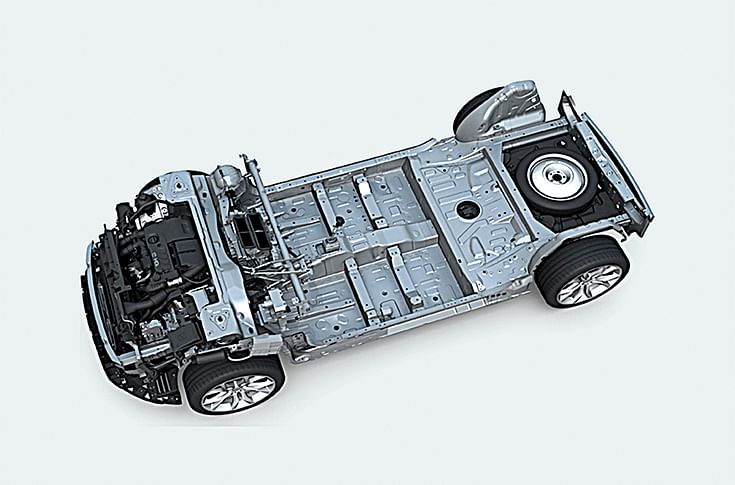With PSA in India, suppliers have new global opportunity
Over 500 automotive component suppliers thronged the PSA Supplier Summit in Chennai. They stand a chance to supply in India and globally if they clear stringent quality and performance criteria.
The PSA Group may be taking a well-calculated approach of scaling up its business in the Indian passenger vehicle market, but it's looking to go on the fast lane to ramp up sourcing of components from India. Last year, the French major sourced made-in-India components worth 250 million euros (Rs 1,911 crore). That figure is set to cross a billion euros maybe in the next 2-3 years.
Michelle Wen, executive vice-president – global sourcing & supplier quality, Groupe PSA, wants to achieve it "as soon as possible". "Indian suppliers have a lot of advantages as well as potential," she said.
That opportunity explains the presence of top executives from various Indian suppliers at the company's India Suppliers Summit, on April 3, which drew over 500 representatives, both Tier 1 and Tier 2 suppliers. It is learnt that around 150 suppliers in India have joined the PSA bandwagon.
For the Indian supplier fraternity, business from the PSA Group, which is implementing its 'Push to Pass' strategy to increase its sales outside Europe by 50 percent, presents a truly huge opportunity.
Supplier selection and retention in the PSA Groupe global supplier base are guided by corporate and social responsibility. The selected suppliers will have access to all of PSA Group business opportunities worldwide, which totaled 42 billion euros (Rs 324,702 crore) in 2018.

EMP2 platform combines PSA's best technological innovations to develop lighter, safer and cleaner cars and also affordability.
Export of made-in-India Citroens will play a big role for the PSA Group to achieve economies of scale to justify localisation of over 90 percent from the start of production. This will involve a very high 98 percent localisation for the vehicle and 90 percent for the C5 Aircross engine.
What will help the company achieve this high level of localisation is PSA’s two JVs in Tamil Nadu with the CK Birla Group for vehicle assembly at Thiruvallur, and a powertrain plant in Hosur with AVTEC, which was inaugurated on November 22, 2018.
PSA Group records fifth straight year of growth
The PSA Group will launch 116 new cars across its five brands — Peugeot, Citroen, DS, Vauxhall and Opel — by 2021, accelerate the electrification of its model range and launch Peugeot in the North American market as part of the second phase of its ‘Push to Pass’ growth plan.
The strategic plan is designed to turn PSA into a 'global vehicle manufacturer'. The company has completed the first phase by recording its fifth consecutive year of growth. Since the first plan was launched, PSA has acquired Vauxhall and Opel, which posted a profit in 2018 for the first time in 20 years.
The second phase of the plan runs from 2019 until 2021, and aims to grow the company’s global presence with entry into several new markets including India, along with expanding its product range and a focus on electrification and digital technology.
Looking for quality, cost & delivery as well as TCO
Michelle Wen, executive vice-president, Global Purchasing and Supplier Quality, Groupe PSA, said: “In a context of fierce competition, purchasing has a key role to play in terms of performance for projects and serial life production phases. We are looking for ‘QCD’ (Quality, Cost & Delivery) performance, not only the lowest cost per part, but also TCO (Total Cost of Ownership). The Monosokuri work ethic, gathering engineering, manufacturing and purchasing will make the difference towards competitors, and our sourcing with Indian suppliers will lead to newer verticals and opportunities to meet customer needs and respond to the technological shift. This Summit also focuses on developing and integrating a broad network of Indian suppliers through encouraging collaborative product development, orchestrating and connecting information across the supply chain, and understanding an ecosystem of suppliers and partners within it.”
Ethical, environmental and social criteria are crucial for selection of a new supplier and are regularly assessed by a third party. This assessment covers the environment, labour practices, fair business practices, and sustainable procurement. The information is used for risk identification and for selection of sites to be audited. Each supplier assessed receives a scorecard covering all relevant aspects of the evaluation.
(This article was first published in the April 15, 2019 issue of Autocar Professional)
RELATED ARTICLES
BKT, the ‘Off-Road King,’ Chases the Consumer Market
The company has unveiled a broad range of tyres for the Indian two-wheeler and CV markets.
RSB Group Prepares for Hyper-Growth: New Markets, Tech and Mission ₹10,000 Cr
From a small workshop in Jamshedpur to an engineering group with global reach, RSB Transmissions is preparing for its mo...
Beyond Helmets: NeoKavach Wants to Make Rider Airbags India’s Next Safety Habit
As premium motorcycles proliferate and riding culture evolves, an Indo-French venture is betting that wearable airbags, ...






 23 Jun 2019
23 Jun 2019
 29295 Views
29295 Views





 Shahkar Abidi
Shahkar Abidi


 Darshan Nakhwa
Darshan Nakhwa


